Form Ct-1040 Nr/py - Connecticut Nonresident And Part-Year Resident Income Tax Return And Instructions - 2012 Page 10
ADVERTISEMENT
If Emma won another state’s lottery during 2012, she would be
Forms and Schedules Included in This Booklet
subject to Connecticut income tax while a Connecticut resident.
This booklet contains forms you may have to complete in
If Emma moves out of Connecticut, and is a part-year resident
addition to Form CT-1040NR/PY. Below is a description
because she changes her permanent legal residence, her lottery
of these forms and an explanation of who should complete
winnings would be subject to special accrual.
them. A self-employed nonresident or part-year resident (for
his or her nonresidency period) who carried on business both
Payment of Tax
in and outside of Connecticut may also be required to file
If you moved out of Connecticut during the taxable year and
Schedule CT-1040BA, Nonresident Business Apportionment. See
you have items of income or gain subject to special accrual, you
Page 35 for instructions.
must either:
Form
Who Should Complete
• Include the items of accrual in the calculation of tax in the year
All nonresidents and part-year residents
Schedule CT-SI
you changed your residence; or
Parts 1 and 2
• File a surety bond or other security and pay the tax as a
A nonresident employee or part-year
Employee
nonresident in the year(s) the income is actually received.
employee (for his or her nonresidency
Apportionment
Surety Bond
period) who worked in and outside of
Worksheet
Connecticut and does not know the actual
You may elect to defer the payment of Connecticut income tax
amount of Connecticut-sourced income.
on items of special accrual by fi ling a surety bond with DRS in
an amount not less than the amount of the additional Connecticut
All part-year residents
Schedule CT-1040AW
income tax that would be payable if no surety bond or other
security were fi led. If you choose this option, you must fi le Form
Taxable Year and Method of Accounting
CT-1040NR/PY for the taxable year when you change your
You must use the same taxable year for Connecticut income
residence. Include a separate statement showing the nature and
tax purposes as you use for federal income tax purposes. Most
amount of each item of special accrual as of the date of change
individuals use the calendar year as their taxable year for federal
of residence together with a computation of the additional
income tax purposes. However, if the calendar year is not your
Connecticut income tax which would be due if the election to fi le
taxable year for federal income tax purposes, references in this
a surety bond had not been made.
booklet to 2012 are references to your taxable year beginning
For more information on the requirements for a surety bond,
during 2012.
contact DRS and request a copy of Conn. Agencies Regs
You must use the same method of accounting for Connecticut
§12-717(c)(4)-1, Form CT-12-717A, Change of Resident Status
income tax purposes as you use for federal income tax purposes.
- Special Accruals, Connecticut Surety Bond Form, and Form
CT-12-717B, Change of Resident Status - Special Accruals, Other
If your taxable year or method of accounting is changed for
Acceptable Security Form.
federal income tax purposes, the same change must be made for
Connecticut income tax purposes.
Change From Nonresident to Resident
If you moved into Connecticut during the taxable year, items of
When to File
income, gain, loss, or deduction that accrue to the period of the
Your Connecticut income tax return is due on or before
year prior to your Connecticut residency are not included in your
April 15, 2013. If you are not a calendar year fi ler, your return is
Connecticut-sourced income. However, items of income derived
due on or before the fi fteenth day of the fourth month following
from or connected with Connecticut sources may not be accrued
the close of your taxable year. If the due date falls on a Saturday,
to the nonresident period and must be included in calculating your
Sunday, or legal holiday, the next business day is the due date.
Connecticut-sourced income for that year.
Your return will meet the timely fi led and timely payment rules
Example: Nikki was a California resident from January 1,
if the U.S. Postal Service cancellation date, or the date recorded
2012, until July 31, 2012. She became a Connecticut resident on
or marked by a designated private delivery service (PDS) using
August 1. While a resident of California, Nikki earned $10,000
a designated type of service, is on or before the due date. Not all
for work performed in that state, but she did not receive payment
services provided by these designated PDSs qualify.
for that work until September 30, 2012.
The following are the designated PDSs and designated types of
Nikki also owned a condominium in Connecticut, which she
service at the time of publication:
rented to a third party from January 1 to July 31, 2012. She
received payment of the rent for the fi rst four months of the
Federal Express (FedEx)
United Parcel Service (UPS)
• FedEx Priority Overnight
year while she was living in California and she received the
• UPS Next Day Air
• FedEx Standard Overnight
• UPS Next Day Air Saver
remaining payments after she became a Connecticut resident.
• FedEx 2Day
• UPS 2nd Day Air
Nikki will file a Connecticut part-year resident return for
• FedEx International Priority
• UPS 2nd Day Air A.M.
2012. The $10,000 of California source income earned before
• FedEx International First
• UPS Worldwide Express Plus
• UPS Worldwide Express
Nikki changed her residency is accrued to her nonresidency
DHL Express (DHL)
period even though she received the payment after becoming a
• DHL Same Day Service
Connecticut resident. The rental payments from Connecticut real
estate are considered Connecticut-sourced income regardless of
This list is subject to change. See Policy Statement 2012(2),
when she received this income. Therefore, the entire amount of
Designated Private Delivery Services and Designated Types of Service.
rental income is includable in her Connecticut adjusted gross
income and none of it is subject to special accrual.
Page 10
ADVERTISEMENT
0 votes
Related Articles
Related forms
Related Categories
Parent category: Financial
 1
1 2
2 3
3 4
4 5
5 6
6 7
7 8
8 9
9 10
10 11
11 12
12 13
13 14
14 15
15 16
16 17
17 18
18 19
19 20
20 21
21 22
22 23
23 24
24 25
25 26
26 27
27 28
28 29
29 30
30 31
31 32
32 33
33 34
34 35
35 36
36 37
37 38
38 39
39 40
40 41
41 42
42 43
43 44
44 45
45 46
46 47
47 48
48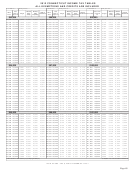 49
49 50
50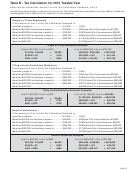 51
51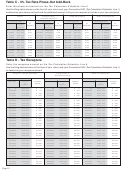 52
52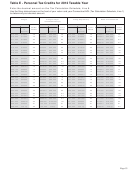 53
53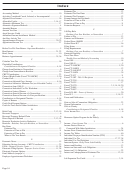 54
54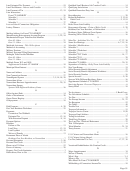 55
55 56
56








